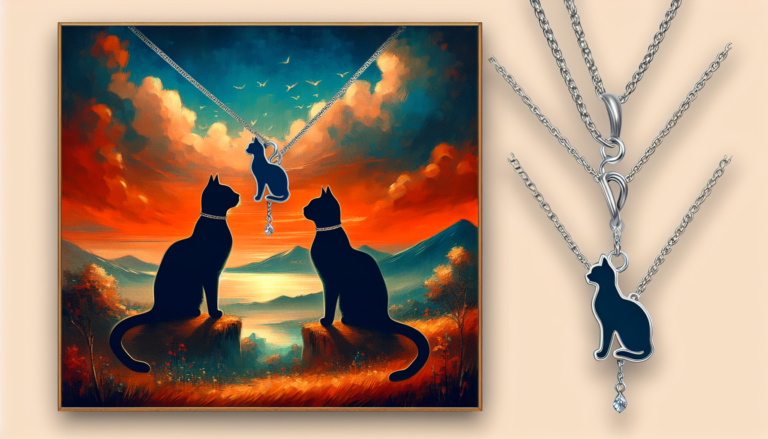Cats Diarrhea: Simple Solutions for a Happy Feline
At Cat Karma Creations, we recognize that cats diarrhea can be both worrisome and inconvenient for pet owners. This guide will explain the typical reasons, indicators, and treatments for cats diarrhea, along with tips on prevention and knowing when to consult a vet. By following this advice, you’ll be better prepared to maintain your cat’s health and happiness.
Understanding the Causes of Cats Diarrhea
Impact of Dietary Changes
Cats are delicate beings, and sudden dietary modifications can lead to cats diarrhea. When new foods are introduced, they may upset your cat’s tummy, resulting in loose stools, throwing up, and general discomfort. To avoid this, it’s wise to make dietary changes slowly, taking 7 to 10 days to mix the new food with the old gradually.
Using high-quality, nutritious cat food is crucial. Low-grade foods often contain fillers and preservatives that might irritate your cat’s digestive system. If your cat is prone to digestive troubles, think about trying a hypoallergenic or sensitive stomach formula. At Cat Karma Creations, we offer a variety of cat-themed jewelry that celebrates feline love.
Parasitic Problems
Problems like worms, fleas, and ticks are other culprits behind cats diarrhea. These parasites may infest a cat’s intestines, leading to weight reduction and bloating. Regular deworming and flea control are pivotal to avoid parasitic infections. Consult your vet if you suspect parasites to get the best treatment options.
Infections as a Cause
Infections, whether viral, bacterial, or fungal, can trigger cats diarrhea. Viruses like feline panleukopenia can present severe symptoms, including fever and laziness. The same goes for bacterial infections, such as salmonella, and some fungal infections.
Prompt veterinary evaluation is vital when an infection is suspected. A vet will conduct tests to determine the issue and recommend suitable treatments, ensuring the condition does not worsen.
Stress-Related Issues
Stress is another factor causing cats diarrhea. Factors such as relocating, introducing a new pet, or loud sounds can create anxiety in cats, disturbing their digestion.
Reduce stress by providing a reassuring and quiet area for your pet. Keep routines steady and minimize sudden changes. Calming pheromone sprays or supplements may also benefit cats prone to stress-induced diarrhea.
Recognizing Symptoms of Cats Diarrhea
Loose and Frequent Stools
A definite symptom of cats diarrhea is frequent loose stools. Watery or unformed stools signal a problem. Normally, cat stools should be firm and well-shaped. If not, monitor your cat’s activities and reach out to a vet if problems persist.
Cats should normally have one or two bowel movements daily. If more frequent with loose stools, investigate further.
Other Symptoms: Vomiting and Lethargy
Besides loose stools, vomiting and fatigue might occur. Frequent vomiting or vomiting with blood requires urgent veterinary care.
Lethargy indicates your cat isn’t feeling well. If paired with vomiting or lack of appetite, consult your vet.
Dehydration and Weight Concerns
Dehydration is a risk during cats diarrhea, especially if accompanied by vomiting. Loss of fluids outweighs intake. Symptoms like dry gums and sunken eyes indicate dehydration. Encourage fluid intake or seek vet aid.
Unexplained weight loss suggests potential health issues. Consult your vet if weight loss coincides with illness symptoms.
Treatments for Cats Diarrhea
Over-the-Counter Remedies
Several non-prescription remedies help combat cats diarrhea. Anti-diarrheal medications can firm up stools and decrease movement frequency. Yet, always use under a vet’s direction.
Probiotics balance gut flora, reducing symptoms. Available as supplements, they promote digestive health.
Using Natural Solutions
Natural remedies can tackle cats diarrhea. Implementing a bland diet of easily digestible foods like boiled chicken may help.
Consider fasting your cat briefly, followed by a gradual bland diet reintroduction. If diarrhea persists, vet consultation is necessary.
Probiotics also aid in natural digestive health.
Veterinary Interventions When Necessary
Persistent or severe cats diarrhea, especially with symptoms like vomiting, requires professional attention. Vets can conduct diagnostic tests and prescribe necessary treatments, from medication to dietary adjustments.
If dehydration occurs, vets may administer fluids to rehydrate and stabilize your cat.
Preventive Measures Against Cats Diarrhea
Proper Nutritional Balance
Prevent cats diarrhea with a nutritionally balanced diet. Provide age-appropriate food and avoid table scraps.
Switch to hypoallergenic formulas if needed and introduce dietary changes slowly.
Vet Check-Ups
Routine vet check-ups are vital to catching and preventing issues causing cats diarrhea. They include exams, diagnostics, and preventive advice.
Stay updated on vaccinations and treatments to avoid common diarrhea causes. If prone to digestive issues, increase check-up frequency.
Stress Management Strategies
Alleviate stress with a comforting environment, steady routines, and calming aids for your cat. Ensure enrichments like playtime to reduce stress.
Comparison Table: Why Cats Get Diarrhea
| Condition | Dietary Factors | Parasites | Infections | Stress |
|---|---|---|---|---|
| Triggers | Diet shifts | Infestations | Viruses/Bacteria | Disruptions |
| Symptoms | Stomach upset | Bloating/Weight loss | Fever/Tiredness | Behavioral |
| Remedies | Gradual change | Deworming | Medications | Environmental |
| Prevention | Smooth transitions | Regular control | Hygiene and vaccines | Stable environment |
Summary Tips
- Learn causes of cats diarrhea like diet or stress.
- Recognize symptoms such as loose stools.
- Explore varied treatment options.
- Implement preventive care and diet management.
- Control stress to minimize diarrhea risks.
- Seek vet advice for prolonged cases.
Inspiring Words
“A cat improvements the hearth in foul weather.”
Interesting Statistics
10% of cats may face diarrhea, per the ASPCA. Understanding the condition is crucial for well-being.
Effective Methods to Manage Cats Diarrhea
- Gradual Food Changes: Transition foods slowly to prevent upset.
- Routine Deworming: Regular schedules deter parasite issues.
- Reduce Stress: Offer a relaxing space and routine.
FAQ: Cats Diarrhea Explained
What triggers cats diarrhea the most?
Diet shifts, parasites, infections, and stress are main factors.
How do I know if my cat is experiencing diarrhea?
Frequent, watery stools and additional symptoms like vomiting are indicators.
When is a vet visit crucial for cats diarrhea?
Severe or persistent diarrhea with other symptoms necessitates a vet visit.
Final Thoughts on Cats Diarrhea
Managed carefully, cats diarrhea can be prevented or minimized. Always seek vet help if symptoms linger. For cat-themed jewelry and tips, visit us at Cat Karma Creations or reach (800) 343-1604. Follow our updates on Facebook and Instagram.

